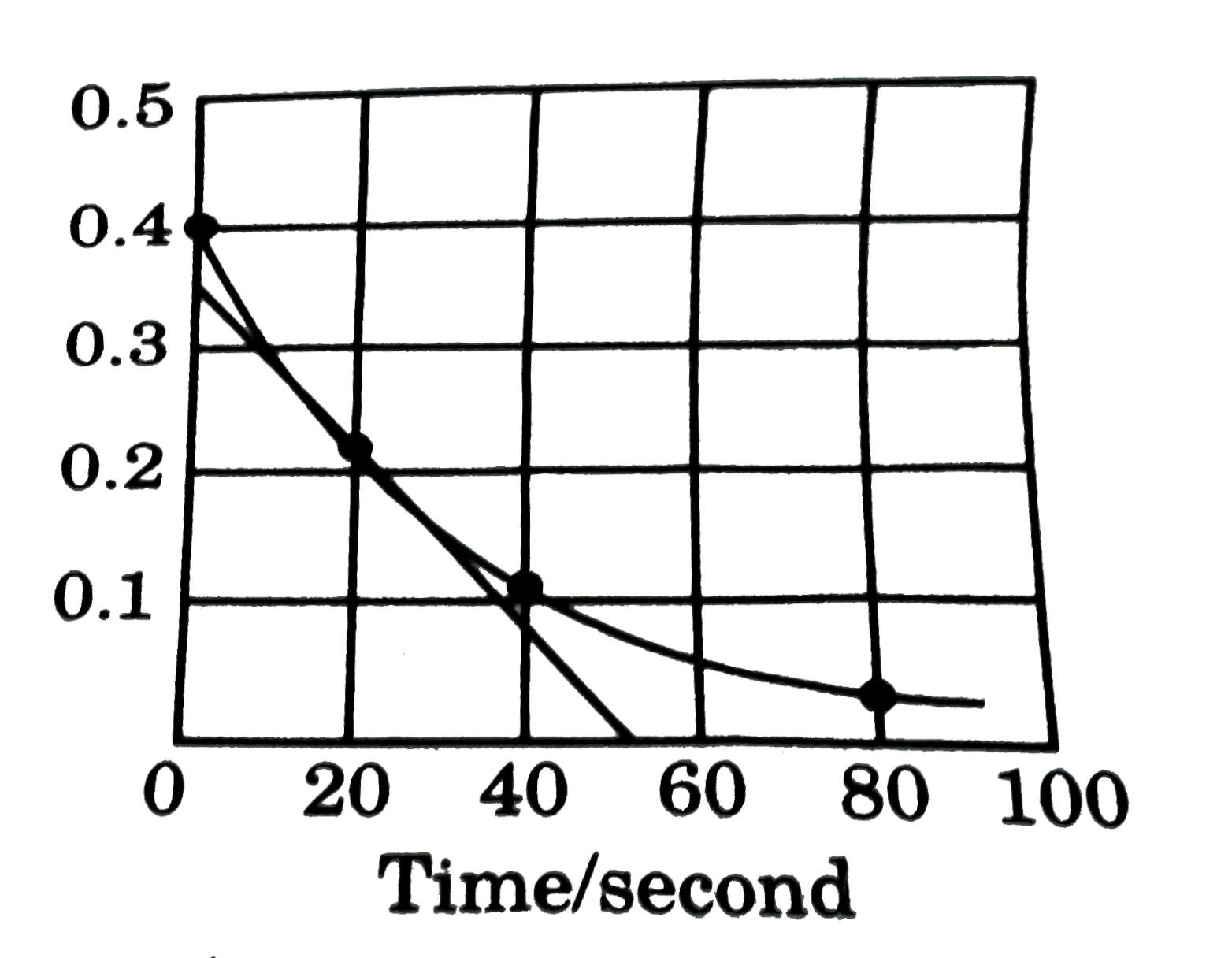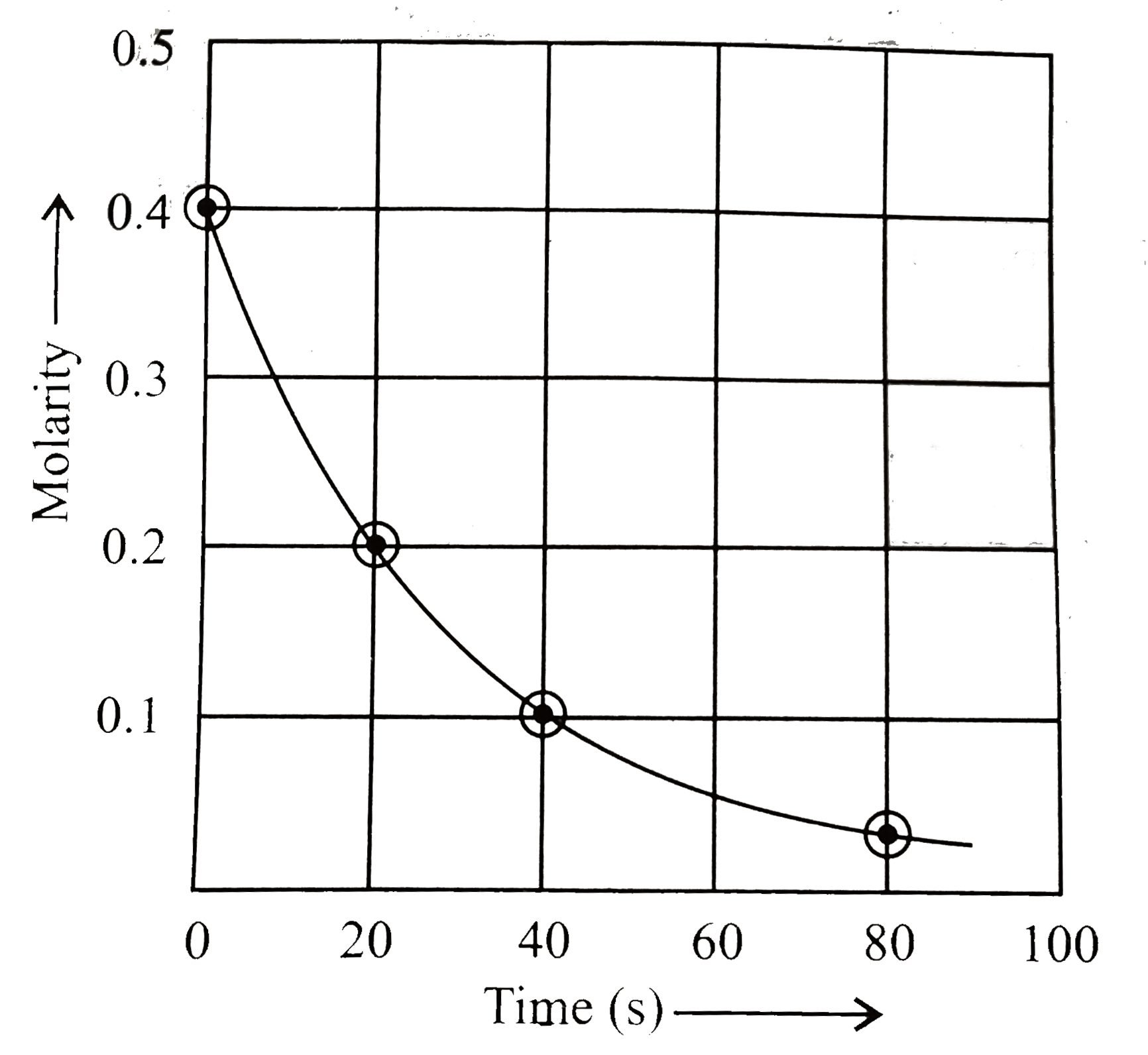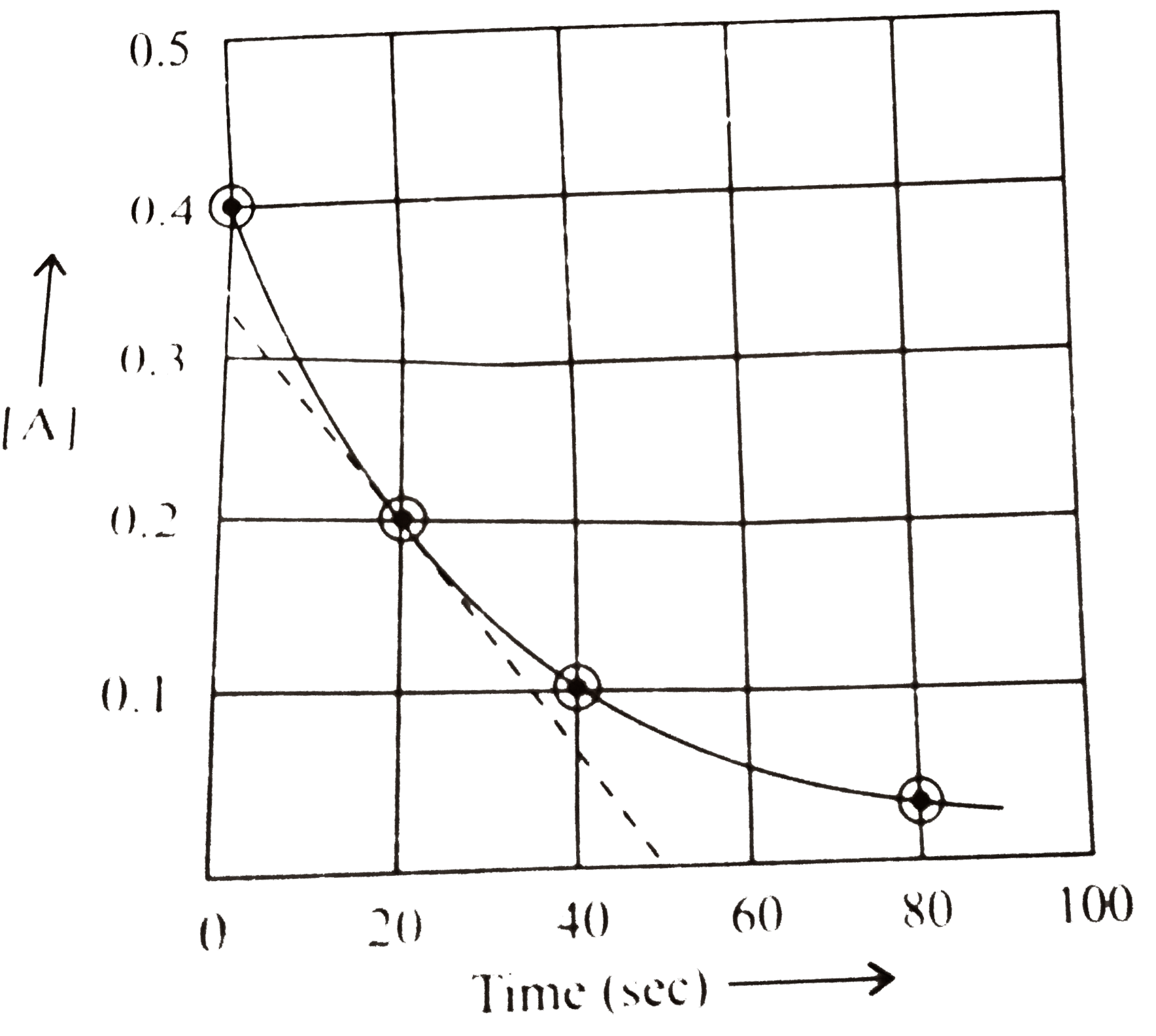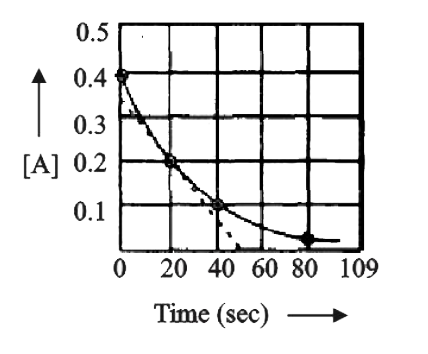A reaction follows the given concentration (M) vs time graph. The rate for this reaction at 20 seconds will be :

4×10−3Ms−1
8×10−2Ms−1
2×10−2Ms−1
7×10−3Ms−1
The correct Answer is:D
Step by step video, text & image solution for A reaction follows the given concentration (M) vs time graph. The rate for this reaction at 20 seconds will be : by Chemistry experts to help you in doubts & scoring excellent marks in Class 12 exams.
Updated on:21/07/2023Topper's Solved these Questions
- GRAPHICAL INTERPRETATIONBOOK - GRB PUBLICATIONCHAPTER - GRAPHICAL INTERPRETATIONEXERCISE - I.Electrochemistry
1 Videos
- GRAPHICAL INTERPRETATIONBOOK - GRB PUBLICATIONCHAPTER - GRAPHICAL INTERPRETATIONEXERCISE - Electrochemistry
9 Videos
- GRAPHICAL INTERPRETATIONBOOK - GRB PUBLICATIONCHAPTER - GRAPHICAL INTERPRETATIONEXERCISE - H. Chemical Kinetics
1 Videos
- F-BLOCK ELEMENTSBOOK - GRB PUBLICATIONCHAPTER - F-BLOCK ELEMENTSEXERCISE - Subjective type
7 Videos
- HYDROCARBON (ALIPHATIC)BOOK - GRB PUBLICATIONCHAPTER - HYDROCARBON (ALIPHATIC)EXERCISE - Previous years jee questions
28 Videos
Similar Questions
In which of the following reactions the graph of concentration vs time for reactants and products will be difficult to plot.
View SolutionThe rate law for a reaction between the substances A and B is given by
Rate = k[A]n[B]m
On doubling the concentration of A and halving the concentration of B, the ratio of the new rate to the earlier rate of the reaction will be as:
View Solution
Knowledge Check
For the reaction: aA+bB→cC+dD
Rate =dxdt=−1ad[A]dt=−1bd[B]dt=1cd[C]dt=1dd[D]dt
A reaction follows the given concentration-time graph. The rate for this reaction at 20s will be
 A4×10−3Ms−1B1×10−2Ms−1C2×10−2Ms−1D7×10−3Ms−1
A4×10−3Ms−1B1×10−2Ms−1C2×10−2Ms−1D7×10−3Ms−1A certain reaction A→B follows the given concentration (Molarity)-time graph. Which of the following statements is/are true?
 AThe reaction is second order with respect to A.BThe rate for this reaction at 20s will be 7×10−3Ms−1CThe rate for this reaction at 80s will be 1.75×10−3Ms−1DThe [B] will be 0.35M at t=60s.
AThe reaction is second order with respect to A.BThe rate for this reaction at 20s will be 7×10−3Ms−1CThe rate for this reaction at 80s will be 1.75×10−3Ms−1DThe [B] will be 0.35M at t=60s.A certain reaction A→B follows the given concentration (molarity) - time graph. Which of the following statement is true?
 AThe reaction is of second order with respect to ABThe rate for this reaction at 40 second will be approximately 3.5×10−3Ms−1CThe rate for this reaction at 80 second will be 1.75×10−3Ms−1DThe [B] will be 0.25 M at 60 second
AThe reaction is of second order with respect to ABThe rate for this reaction at 40 second will be approximately 3.5×10−3Ms−1CThe rate for this reaction at 80 second will be 1.75×10−3Ms−1DThe [B] will be 0.25 M at 60 second
The rate law for reaction between the substances A and B is given by Rate =k[A]n[B]m
On doubling the concentration of A and having the concentration of B, the ratio of the new rate of the earlier rate of reaction will be
View SolutionThe rate law for reaction hetween the substances A and B is given by Rate = k[A]n[B]m.
On doubling the concentration of A and halving the concentration of B, the ratio of the new rate to the earlier rate of reaction will be
View SolutionThe rate law for a reaction between the substances A and B is given by
Rate = k[A]n[B]m
On doubling the concentration of A and halving the concentration of B, the ratio of the new rate to the earlier rate of the reaction will be as:
View SolutionThe rate law for a reaction between the substances A and B is given by
Rate = k[A]n[B]m
On doubling the concentration of A and halving the concentration of B, the ratio of the new rate to the earlier rate of the reaction will be as:
View SolutionThe rate law for a reaction between the substances A and B is given by rate = k[A]n[B]m. On doubling the concentration of A and halving the concentration of B, the ratio of the new rate to the earlier rate of the reaction will be as
View Solution
